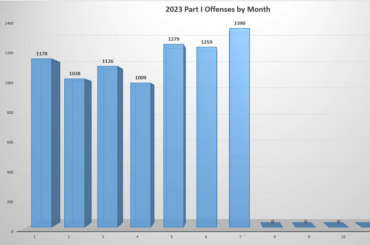In past years, voting day has been akin to a neighborhood block party. Everybody knows everybody. As we all stand in line chit-chatting, we talk about dog-walking, the weather, and who’s renovating the house on the corner.
This year my voting location changed. The notice of this change came months ago on the crummiest, non-descript post card, the likes of which I haven’t seen in 50 years. In the “VOTE AT” field were the letters “Umc.” I had to use the internet to find out what “Umc” meant. It means United Methodist Church. That abbreviation felt like a barrier of information. But since the new polling station was just a few blocks from my previous location, I’m not sure if I was gerrymandered. But maybe others were.
This year, while I stand in line, I will take note of the voters queuing up. If they seem to have come from afar, it may be evidence that dirty politics is at play.
Campaign Messaging
I read in Ernie Dumas’ book, The Education of Ernie Dumas, that Arkansas First Lady Pryor, while living in the Governor’s Mansion, overheard a negative ad her husband’s party had plans to run and put her foot down, saying, “no negative campaigning.” She went on to insist her husband, Governor David Pryor, run for his second term on his own merit, not by tearing another opponent down.
Gone are those days. Dirty politics are openly embraced and even bragged about. Fear mongering is at the forefront of many campaign ads. We know from our history books that this emotional tactic works well in garnering public support which, today, equates to algorithmic shares on the internet. But we also know, from our history books, fear mongering has negative consequences for any country. Divide the people and conquer the country. A chapter right out of a dictator’s playbook.
Politicians Are Your Employee
As citizens, we need to remember that politicians work for us. They are our employee, and we need to hire accordingly. As any businessperson will tell you, good hiring practices are essential to success. A bad hire costs the company (or country) time, morale, and money.
Hiring smart is so important that, years ago, when FAB had no money, I extravagantly paid a consultant to teach me how to read a resume, formulate interview questions, and know what to look for when interviewing a candidate.
This is what I learned to watch for:
- Does the candidate take responsibility or do they make excuses, often by finger pointing and blaming a prior boss or employee? This is a big red flag. And an immediate disqualifier because it affects steps 2,3, and 7.
- Do they get along with others? (See step one)
- Are they able to work in groups? (See step one)
- Do they have the skill sets needed to do the job?
- What is their work experience? Have they researched the job opening?
- Are they dependable?
- Longevity. Are they job hoppers? (See step one)
Simple, right? You would think so, but too often we let our emotions get in the way of our good judgement, or we talk too much and listen too little. It is hard to learn when you are talking and repeating what you already know. As Greek Philosopher Diogenes (Dy-awe-gen-ees) wrote, “We have two ears and one tongue, so that we may listen more.”
Get Informed
I may be the only not-so-smart person that didn’t know this, but you don’t have to vote on every issue or race on the ballot. You can just skip it! That’s right, rather than vote on something or person you don’t know about, just skip it, and go on to the topics or race that you do.
In Arkansas, and I am sure elsewhere, you can print a sample ballot and begin to get informed before you go to the polls. Then, when voting, you can vote objectively and intelligently for things that would help you, your family, or your life.
This election is not about California, New York, Texas, or Florida, so don’t get sidetracked. It is about you and your state. Think six degrees of separation. You are closer to effecting change and having your elected officials effect you than you may think.
If you think crime, education, and poverty are a problem in your state, than be brave; Vote in a change.
(Don’t want to miss Kerry’s weekly blog? Click the “Subscribe” button on right side bar or below on your phone.)















